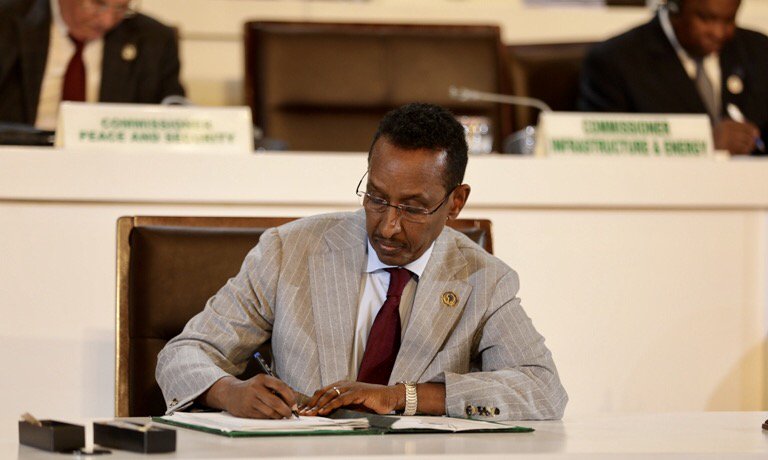Somalia appends signature to the continental trade bloc AfCFTA


Somalia has appended its signature to the free movement protocol joining 29 other African countries in actualizing a key legal instrument of the newly established African Continental Free Trade Area (AfCFTA).
Foreign Minister Ahmed Awad also signed the AfCFTA Consolidated Text and Kigali Declaration on behalf of Somalia as various countries expressed varying opinions. In the region, Ethiopia did not signt the free movement protocol while Tanzania which has remained protective within the East African Community only signed the declaration. Kenya on its part signed all the tree instruments.
A total of 40 countries signed the AfCFTA Consolidated Text while 47 countries appended their signatures to the Kigali Declaration.
In his address in Kigali, Awad said the agreement was instrumental in boosting trade in the continent noting Somalia was committed to ratification and implementation of the agreement.
“Somalia adds its voice in support of this historical Agreement and increasing inter-African trade in reforming our continental economy by exploring new ways to expand commerce and investment among us,” said Awad.
“Somalia pledges to work alongside with the African Union to ensure the ratification and implementation of this agreement so that our people enjoy the benefits of today’s milestone decision for generations to come.”
The signing of the protocol paved way for the coming to being of AfCFTA which African leaders have described as a major steps towards integrating economies and reaping from the resultant intra-trade. According to the framers of AfCFTA, its actualization will boost trade among African countries from the current 16% to 52.3%.
Currently Africa trades far less with itself than it does with the rest of the world. Intra-Africa trade stands at about 16%, compared with 19% intra-regional trade in Latin America, 51% in Asia, 54% in North America and 70% in Europe. “The United Nations Economic for Africa estimates that the AfCFTA has the potential to boost intra-Africa trade by 53% by eliminating import duties and non-tariff barriers. It could create an African market of over 1.2 billion people with a Gross Domestic Product (GDP) of $2.5 trillion,” the AU said.